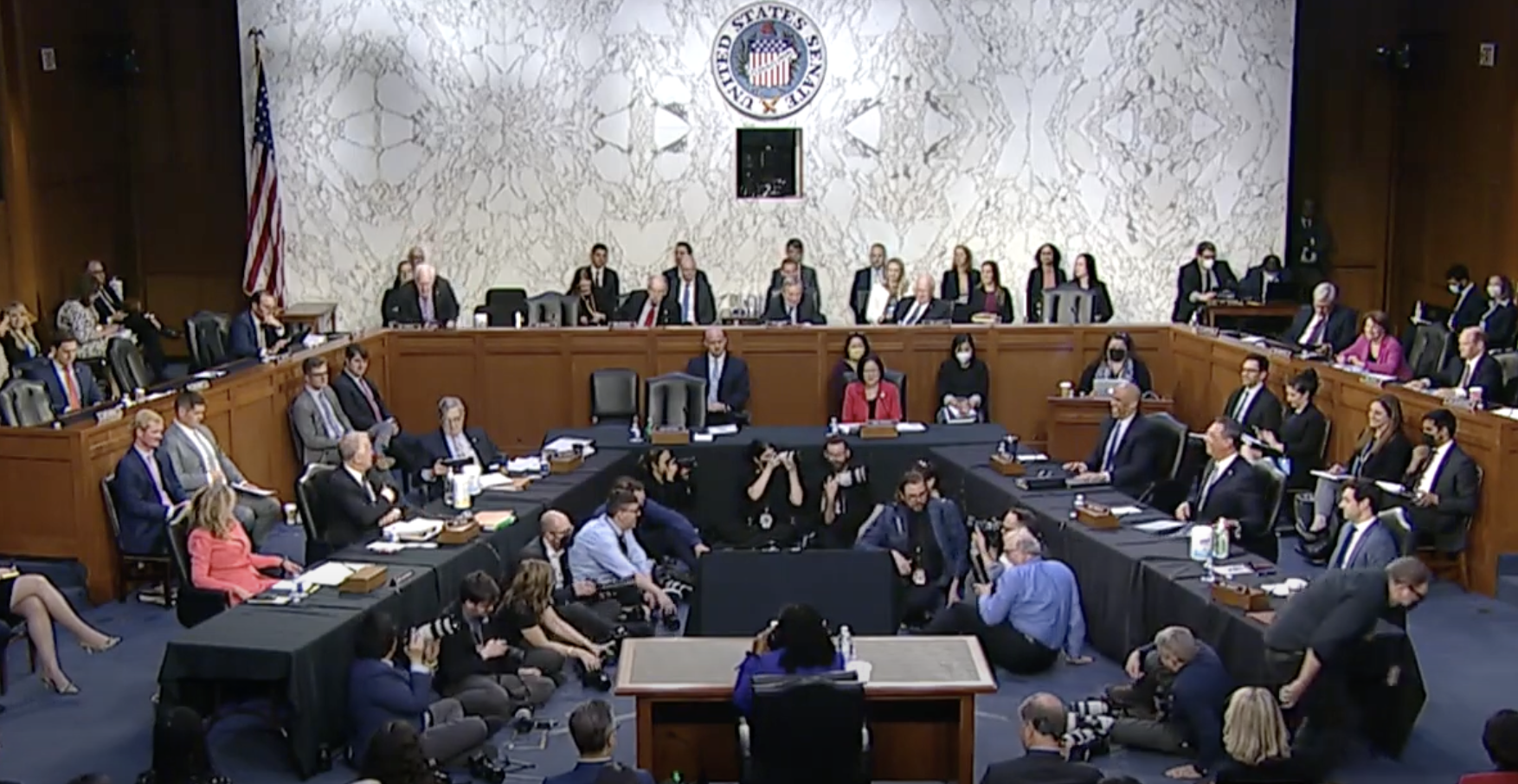U.S. Senate to vote on SCOTUS nominee this week after committee deadlocks
By Theresa Opeka, Carolina Journal
The United States Senate voted 53 to 47 Monday, April 4, to discharge the Senate Judiciary Committee from further consideration of Judge Ketanji Brown Jackson’s nomination to the U.S. Supreme Court. This after the committee deadlocked along party lines with a tie vote of 11 to 11.
Discharging the committee will bring her nomination to the U.S. Senate chamber floor for a final vote later this week. Both North Carolina U.S. Senators Thom Tillis and Richard Burr voted against her appointment.
Per procedure with a tie, committee chairman Sen. Richard Durbin, D-Illinois, notified the Senate of the tie. Senate Majority Leader Charles Schumer, D-New York, then filed a discharge motion that discharged the committee from its usual duty of recommending the nomination for a vote of the full Senate.
Tills had been tactful throughout the proceedings, stating that while he was impressed with her experience, character, and how she conducted herself throughout the hearings, he had concerns that she would legislate from the bench instead of following the Constitution as written. In comments before the committee, Tillis said he is disappointed that she wouldn’t take a firm public stand against “a liberal, dark money court-packing scheme that that represents a fundamental threat to the independence of the federal judiciary, even though other justices like Ruth Bader Ginsburg and Stephen Breyer have done so.”
“Now we have these same groups, Demand Justice and others,” Tillis said before Monday's committee vote. “They have organizations focused on nuking the filibuster. And on Jan. 19 we came really close to doing that. We all know if that occurred, it would have laid the predicate for expanding the Supreme Court.”
He said that while Jackson denied any connection to radical, liberal activist groups like Arabella (Advisors) or Demand Justice, she is on their shortlist for Supreme Court justice.
“Their activists’ outcomes couldn’t be further from what I want to see with respect to the future of our nation,” he said.
“We can talk about these hearings being politicizing and divisive, but nothing would be more politicizing, divisive, and destructive to the Supreme Court than to expand it and pack it,” Tillis added. “So, for those and other reasons, and some of the responses to my more than 300 questions for the record, I am not going to be supporting Judge Jackson.”
Tillis closed by saying he wished her family well and said she was “a realization of an American dream” and his decision not to support her nomination had nothing to do with her character.
Burr said in a statement last week that he was concerned about Jackson’s position on radical proposals to pack the Supreme Court by expanding the number of justices. “Court-packing is a transparent power grab – one that would forever compromise the integrity, impartiality, and independence of the Supreme Court,” he said. “Justice Ginsburg and Justice Breyer both rejected court-packing and the next justice who joins the Court should do the same.”
Burr said Jackson’s answers to his question, in both her confirmation hearing and their personal discussion, were unsatisfactory. “While she is undoubtedly highly qualified, knowledgeable, and experienced, based on our discussion, I cannot support Judge Jackson’s nomination when it comes before the Senate,” he said.
In addition to Tillis and Burr, senators like Sen. John Cornyn, R-TX, had questions about Jackson’s ties to dark-money groups, like Demand Justice, who had poured millions of dollars into a public campaign in support of her nomination.
Others, including Sen. Josh Hawley, R-MO, had questions about Jackson’s lenient sentences for seven cases involving child pornography, each below what the federal guidelines recommended and below what prosecutors requested.
There was also a question from Sen. Marsha Blackburn, R-Tenn., that went viral on social media in which she asked Brown, “Can you provide a definition for the word “woman?” to which Jackson replied, “I’m not a biologist.”
If confirmed, Jackson would become the court’s 116th justice and the first black woman to serve on the bench.



